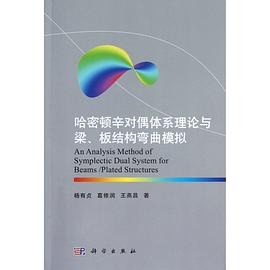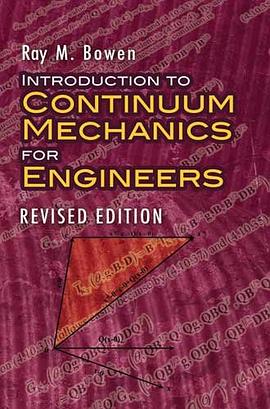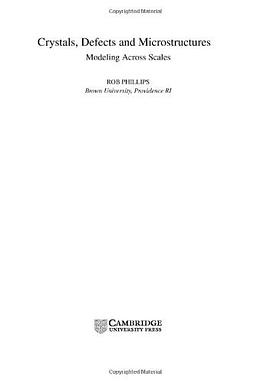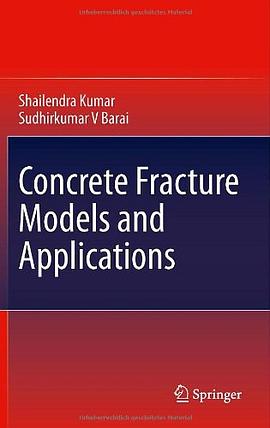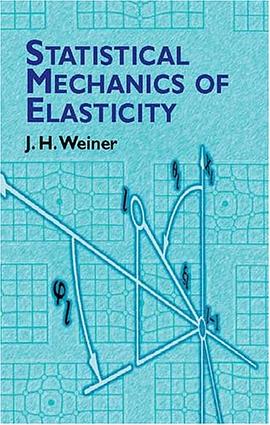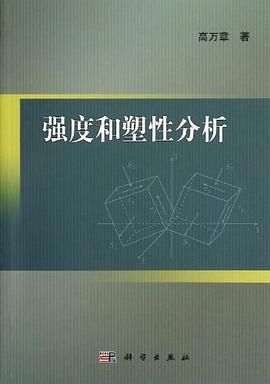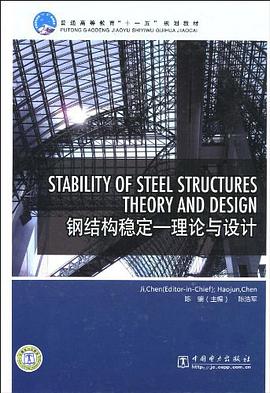

具体描述
钱伟长方程,在奇异摄动理论方面独创性地写出了有关固定圆板的大挠度问题的渐近解,国际力学界称之为“钱伟长方程”。这部被该图书馆编号为AAT0148738的博士论文,正是不久前去世的中国科学院资深院士钱伟长奠定其在美国科学界地位的成名之作——《钱伟长博士学位论文:弹性板壳的内禀理论》,论文中提出的关于扁壳的非线性方程组被国际上称为“钱伟长方程”。爱因斯坦看后,感叹:这位中国青年解决了困扰我多年的问题。
作者简介
目录信息
1.Introduction and summary
PART Ⅰ GENERAL THEORY
2.Calculation of macroscopic tensors in terms of microscopic quantities
3.Derivation of macroscopic equations of equilibrium from microscopic considerations
4.The macroscopic tensors in terms of the six quantities pαβ and qαβ
5.Equations of equilibrium and compatibility in terms of the six unknowns pαβ and qαβ
6.The equations of equilibrium and compatibility referred to the middle surface in the natural state
PART Ⅱ APPLICATION TO THIN PLATES
7.Classification of all thin plate problems
8.Problems of finite deflection ( q = 0), Types P1—P3
9.Problems of small deflection (q≥1, p = 1;q = 1, p = 2;q ≥ 1;p > 2q), Types P4—P8
10.Problems of very small deflection (q ≥ 2, 2q ≥ p ≥ 2), Types P9 —P11, and problems of zero deflection (q = ∞), Type P12
PART Ⅱ APPLICATION TO THIN SHELLS
11.Classification of all thin shell problems
12.Problems of thin shells with finite curvature (b = 0), Types SF1—SF8
13.Problems of thin shells with small curvature (b ≥ 1) :
Problems effectively equivalent to thin plate problems (q < b),
Types SS1—SS11 Problems of critical deflection (q = b), Types SS12—SS18
14.Problems of thin shells with small curvature (b ≥ 1): (continued)
Problems in which the deflection is small compared with the initial
curvature (q > b), Types SS19—SS27
15.Certain practical applications
(ⅰ) Type SF4: The case of a developable shell
(ⅱ) Type SS12 and the von Karman—Tsien theory of buckling of thin shells
Acknowledgement
Appendices
(ⅰ) Table Ⅰ: Table of the more frequent notations
(ⅱ) Table Ⅱ: Table of the equations of equilibrium and compatibility of thin shell and plate problems
(ⅲ) Table Ⅱ: Table of the external force system and the macroscopic tensors
Bibliography
后记
· · · · · · (收起)
PART Ⅰ GENERAL THEORY
2.Calculation of macroscopic tensors in terms of microscopic quantities
3.Derivation of macroscopic equations of equilibrium from microscopic considerations
4.The macroscopic tensors in terms of the six quantities pαβ and qαβ
5.Equations of equilibrium and compatibility in terms of the six unknowns pαβ and qαβ
6.The equations of equilibrium and compatibility referred to the middle surface in the natural state
PART Ⅱ APPLICATION TO THIN PLATES
7.Classification of all thin plate problems
8.Problems of finite deflection ( q = 0), Types P1—P3
9.Problems of small deflection (q≥1, p = 1;q = 1, p = 2;q ≥ 1;p > 2q), Types P4—P8
10.Problems of very small deflection (q ≥ 2, 2q ≥ p ≥ 2), Types P9 —P11, and problems of zero deflection (q = ∞), Type P12
PART Ⅱ APPLICATION TO THIN SHELLS
11.Classification of all thin shell problems
12.Problems of thin shells with finite curvature (b = 0), Types SF1—SF8
13.Problems of thin shells with small curvature (b ≥ 1) :
Problems effectively equivalent to thin plate problems (q < b),
Types SS1—SS11 Problems of critical deflection (q = b), Types SS12—SS18
14.Problems of thin shells with small curvature (b ≥ 1): (continued)
Problems in which the deflection is small compared with the initial
curvature (q > b), Types SS19—SS27
15.Certain practical applications
(ⅰ) Type SF4: The case of a developable shell
(ⅱ) Type SS12 and the von Karman—Tsien theory of buckling of thin shells
Acknowledgement
Appendices
(ⅰ) Table Ⅰ: Table of the more frequent notations
(ⅱ) Table Ⅱ: Table of the equations of equilibrium and compatibility of thin shell and plate problems
(ⅲ) Table Ⅱ: Table of the external force system and the macroscopic tensors
Bibliography
后记
· · · · · · (收起)
读后感
评分
评分
评分
评分
评分
用户评价
评分
评分
评分
评分
评分
相关图书
本站所有内容均为互联网搜索引擎提供的公开搜索信息,本站不存储任何数据与内容,任何内容与数据均与本站无关,如有需要请联系相关搜索引擎包括但不限于百度,google,bing,sogou 等
© 2025 book.quotespace.org All Rights Reserved. 小美书屋 版权所有

